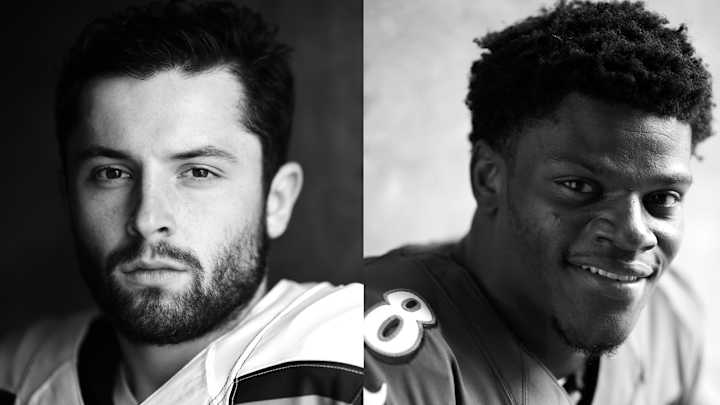NFLPA, Caught in the Middle

Three days before the NFL announced measures aimed at ending player protests during the National Anthem, 40 NFL rookies were sitting around tables in a curtained-off section of ballroom at the Beverly Hilton in Los Angeles. Matt Hasselbeck, Steve Smith and a handful of former players were giving life advice to would-be NFL stars. They spoke beside a stage and a banner reading PRESERVE OUR GAINS, DEFINE OUR FUTURE.
Players created vision boards using images cut out from magazines, and were warned against superficial goals like cars and jewelry. They discussed the career arcs of Cam Newton, among others, with the aid of worksheets that noted Newton’s college arrest for stealing a laptop and his subsequent success and good deeds, and Johnny Manziel’s path to unemployment. An NFLPA organizer’s parting words: Get more out of football than it gets out of you.
All five first-round quarterbacks attended the rookie premiere in Los Angeles, traditionally an opportunity for NFLPA business partners like Panini trading cards, Nike and the Madden video game series to connect with players. (Rookies who signed a certain number of Panini cards bearing their likeness received a signed pair of Kobe Bryant’s signature shoe.) Collective bargaining and the power struggle between the league and its union were not on the menu, but organizers hope the event serves a larger purpose.
In its growing emphasis on a player education program that in many ways parallels the NFL’s rookie symposium, the union is working to become more in the eyes of players than simply a collective bargaining entity and a resource for players who run afoul of the league’s rules. “Our Rookie Premiere is focused on the business of football and provides our partners with a unique introduction to the players,” says NFL Players Inc. president Ahmad Nassar. “But we also want players to make the connection with their union and embrace their role in it.”
“When I came into the league it was just the two player reps for each team, and that was basically the only relationship with the union,” Hasselbeck said. “I think the NFLPA wants to reach more guys.”
Matt Forte: ‘Football Is Not Nice, and It’s Not Meant To Be’
Then, just three days after the NFLPA wrapped up the event, the NFL demonstrated just how toothless the union can be when it comes to one of the biggest issues affecting players. In an episode reminiscent of the league’s unveiling of a new personal conduct policy in 2014 without the input of the players, the NFL last week announced fines for teams whose players protest during the playing of the national anthem on game days. The union fired back with a statement—a promise to do as it had done with the conduct policy and challenge any aspect of the new rule inconsistent with the 2011 CBA. That 2014 challenge failed, which hardly bodes well for a challenge to the anthem rule.
With the anthem issue, the union finds itself working to strike a political balance. The NFLPA took a calculated risk in allowing a players coalition led by Malcolm Jenkins to negotiate the anthem issue with NFL owners without a strong NFLPA presence. Union officials in communication with the coalition advised players on their rights to protest but made no outward show of support for the causes they advocated and didn’t advise them on those issues, choosing to steer clear of the thorny realm of social justice out of deference to politically conservative players in the union. Now, after the NFL took advantage of division within the coalition to pass a new rule without player input, the union is expressing its disappointment at not being involved.
The NFLPA can’t have it both ways. The growing emphasis on strengthening the players’ connection with their union will come with the expectation that the NFLPA take a firmer stand on issues it hasn’t historically negotiated. Colin Kaepernick, in his 2016 protests, ignited a vocal generation of player leadership that is more concerned than ever about social justice, and more vocal than their conservative colleagues. Labor peace in 2021, and any gains made by a unified player front, may hinge on the union’s navigation of that dynamic.
Question or comment? Email us at talkback@themmqb.com.
